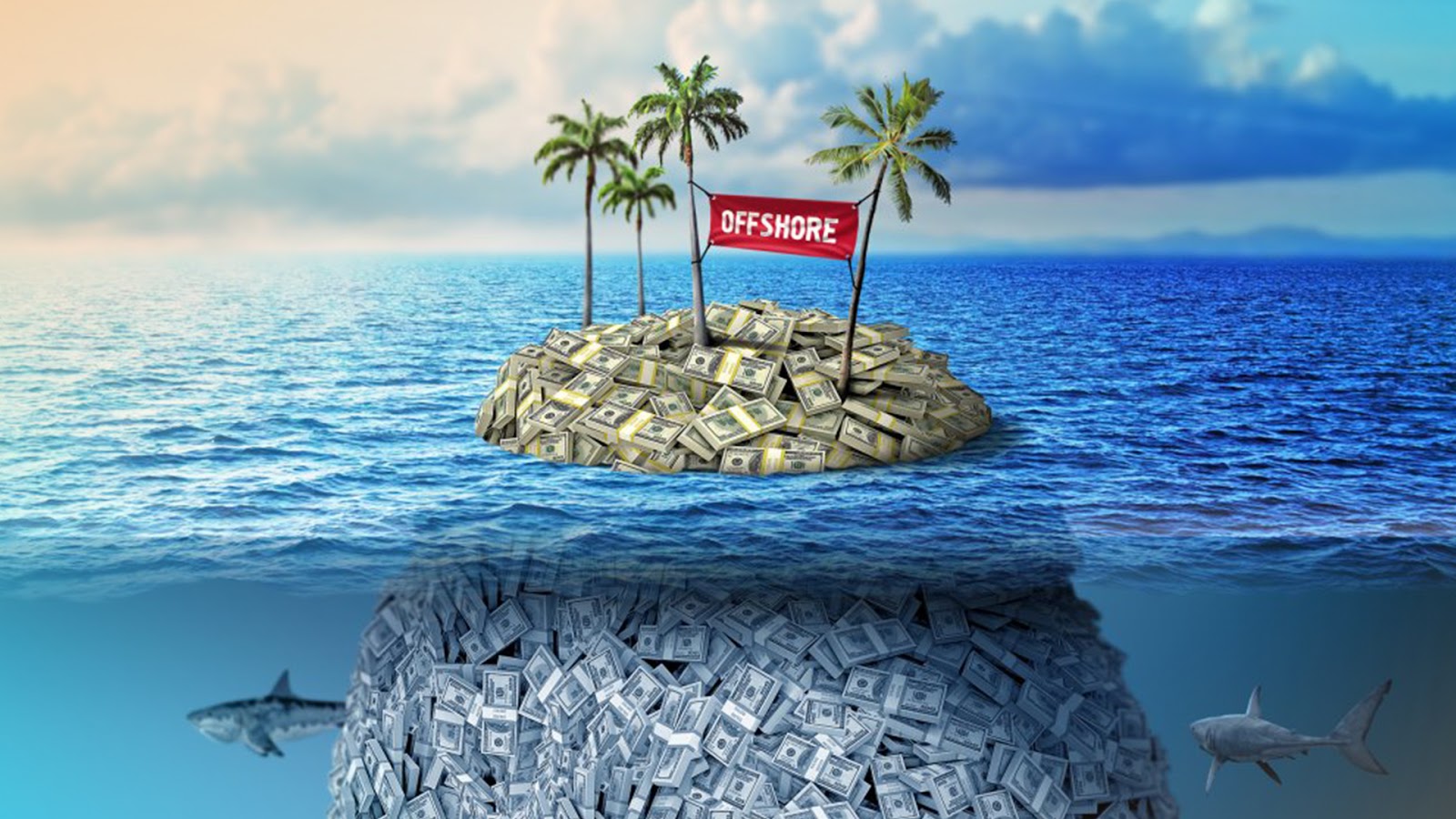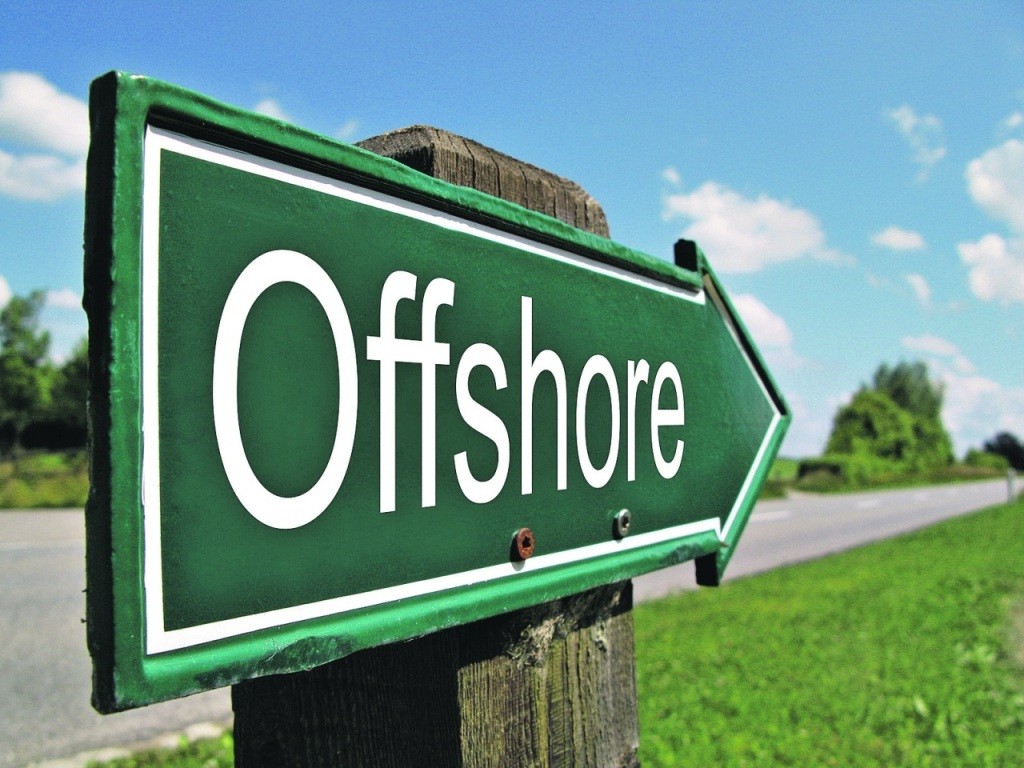What is offshore: features of use for business

The topic of offshore companies interests many businessmen. There are a lot of rumors and other information on the Internet that do not give a clear definition of the term, and also do not disclose the meaning of this tool for business. Therefore, we took the liberty to give a detailed explanation of the question “what are offshore companies”, what they are for, what are the known ways of withdrawing money to offshore zones, what accounts are opened for, and companies are registered on the territory of offshore companies.
What is an offshore company? The word offshore most people decipher as the withdrawal of money abroad through the use of various frauds. Many experts believe that there is no longer an offshore company. However, reality shows the opposite: offshore companies not only exist, but also continue to work. However, over time, they have slightly changed and adapted to modern realities.
Currently, offshore companies are a tool that can be used to optimize the tax burden and protect your own capital. What does offshore mean?
The offshore value has several interpretations. The meaning of the most common one is that an offshore company is a country or territory where there is a preferential tax regime for foreign companies or there are no tax payments at all. Such countries are also called offshore zones, tax havens, etc.
In business and the media, the definition of “offshore” refers not only to companies, but also to assets that are located abroad. If you do not go into the legal subtleties, then this definition is not a mistake.
The level of “offshoring” of a state is influenced by many factors, in particular, the perception of the country in the international arena. How to understand? For example, if you want to register a company in the Marshall Islands or Bermuda, then the corporate tax from international sources will be zero. The above-mentioned jurisdictions are classic offshore companies. This means that it will be very easy to register a company in these jurisdictions, and the cost of registration is available to a wide range of people.

In addition to offshore companies, there are midshores-Hong Kong and Singapore. These countries are popular with businessmen. Of course, major Asian financial centers are not completely exempt from taxes, but they provide an opportunity to use favorable tax regimes, as well as provide access to the global banking system.
There is also an onshore category of countries. This group includes countries that have a developed economy, but do not provide non-residents with preferential tax conditions. This list includes countries such as Latvia, the United States, and the Netherlands.
What is an offshore company in simple terms?
A classic offshore company has the following features::
- no indirect taxes.The Company pays an annual fee to the budget in accordance with applicable corporate laws and regulations;
- companies can operate without their own physical office or hired staff, but they must perform all their actions through a registered agent, as well as have an office registration address.;
- the company is managed by a representative of a local trust or law firm;
- use of tools that increase business privacy.
It should be noted that there is no single definition of offshore. For example, the IMF considers offshore jurisdictions where the share of financial services rendered to non-residents is higher than for residents.
According to Wikipedia, offshore was first mentioned in the late 50s of the last century. At that time, the term was a characteristic of a financial institution that avoided the tax burden by moving its “work” to regions with a more favorable climate.
This method was used in ancient times, when merchants “transported” their business to places where there were lower tax rates. In other words, offshore companies in the distant past made it possible to optimize taxation. Since the 50s of the XX century, illegal capital was still hidden in these places. This decision is quite justified, since offshore companies guaranteed a high level of confidentiality.
The situation has changed dramatically in recent years. Many countries have adopted BEPS principles to combat tax schemes, as well as money laundering. The essence of these methods is that countries should adopt a minimum of requirements at the legislative level, which will help to avoid tax abuse.

Often, companies are registered in such places in order to get certain tax benefits, but they do not carry out real business activities in the territory of the chosen jurisdiction. According to new legislation, such companies must pass PPT and S-LOB testing. Based on the results, it will be possible to determine the main purpose of registering a company, as well as to prevent tax abuse.
The OECD introduced the CRS in 2014, and participants in this standard committed to annually exchange data provided by local financial institutions. Thus, the competent authorities now have information about the accounts of tax residents that are opened in other jurisdictions.
Classic offshore companies, under pressure from international structures, changed their legislation, began to participate in the exchange of information, as well as demand subvention from clients. Many experts have suggested that the era of offshore companies is ending, but reality shows the opposite.
It is still too early to say whether offshore companies will stop operating or not, as they continue to exist and are used for business. The changes have led to the transformation of offshore companies into a legal instrument that reduces corporate tax expenses and provides businesses with a high degree of protection.
Offshore companies for dummies
The term offshore appalls those who are not big business movers and shakers. Nowadays, offshore companies are considered fraud, crime and betrayal of the motherland. This attitude can be explained by the fact that this term does not have a clear definition. Today, offshore companies are very popular, as their requirements and principles are simple, and the mechanism of operation is legalized. Offshore what is it? Offshore companies are countries or a part of the territory where special economic conditions apply to non-residents, such as preferential taxation or its complete absence.
Offshore companies can be:
- classic ones;
- with reduced taxation;
- the European zone.

Classic offshore companies are the most popular among businessmen. As a rule, they are small island states that offer non-residents a complete absence of taxes, a liberal attitude towards auditing and financial reporting, and low annual payments to the budget. The most famous classic offshore companies are Panama, Bermuda, Belize, the Cayman Islands, Seychelles, etc.
Offshore companies with low tax rates speak for themselves, these are reduced taxes and a lenient attitude to documentation. Representatives of this category are the Bahamas, Scotland and Panama. This group also includes jurisdictions that have the right to request financial statements from the company. These include Hungary, San Marino, Cyprus, etc.
Offshore companies of the “European zone” are equated with offshore companies for the reason that they may also have reduced tax rates for non-residents. However, here you need to maintain accounting records, provide financial statements, and pass audits. An example of an offshore European area is the Netherlands, where the corporate tax for non-residents barely reaches 1%.
As a rule, offshore companies are countries that are not rich in valuable natural resources. The only way to generate income is to attract foreign investment. In order for foreign companies to work with them, they offer conditions that are much better than “home” ones. Thus, an offshore country achieves economic and financial viability, as well as opens up jobs for the population. An offshore jurisdiction, in exchange for benefits, only asks not to carry out activities on its territory. Thus, this offer is beneficial for everyone — a non-resident does not pay taxes, and the country receives a reward every year.
Having an offshore company and accounts with a businessman is not a crime. But the frequent use of such companies for financial manipulation attracts the attention of tax authorities in many countries. Capital flight does not affect the state’s economy in the best way, so regulatory authorities create artificial barriers that prevent the withdrawal of capital from the country. One of the most common methods is to create a “black list” of offshore companies.
Offshore what are they and what are they used for?

If you believe the media and politicians, then offshore companies are needed for tax evasion and money laundering. Naturally, this definition does not correspond to reality. An offshore company is, first of all, a tool that can be used to solve various tasks. In addition, it must be used in accordance with the law. However, today there are many individuals who play against the rules. If the former is permissible, then the latter is punishable. It is not difficult to detect criminals today, as the tax authorities of many countries have established the exchange of information about people who are fugitives from justice and taxes. Why do we need offshore companies?
Offshore companies are selected in the following cases::
- asset protection;
- implementation of international activities;
- obtaining a license for specific activities;
- optimize your business, reduce time spent working with reports, gain access to new customers, and reduce the tax burden.
There are a lot of ways to use offshore companies that will be of interest to prudent businessmen.
What does offshore mean: offshore companies and their meaning
Despite the fact that the legislation of many jurisdictions has changed, offshore firms are considered one of the most common ways of doing business. Thanks to them, you can get benefits from preferential taxation, as well as optimize the tax burden. For this reason, interest in offshore zones still remains at a high level.
Offshore companies are legal entities registered in an offshore zone that enjoy tax benefits. Offshore zones are countries or territories that provide tax incentives to non-residents in order to attract international business.
Each offshore company is assigned a certain legal status, which depends on the legislation of the jurisdiction where it was registered. You need to choose a jurisdiction for registration based on international tax planning, which allows you to find the most favorable conditions for business development.

The main advantages of offshore companies:
- no taxes required;
- flexible legislative framework;
- support for non-residents at all levels.
These advantages should be considered as a good opportunity for business development. This way, you will be able to protect your company from liquidation, resist illegal claims and illegal claims.
An offshore company has both pros and cons. The choice of jurisdiction should be carefully and seriously considered, as it affects the consequences that the use of various offshore schemes can lead to. Many countries now impose restrictions on working with offshore companies and territories. For example, in the United States and EU countries, companies that are established in such jurisdictions are thoroughly checked, and as a result, the deadlines for fulfilling obligations are significantly increased.
How to withdraw money to offshore companies?
Studying the topic “offshore what is it”, you should also touch on ways to withdraw funds to these jurisdictions. One of the most common options is to transfer assets to an offshore organization. You can withdraw not only money, but also a share of the company, real estate and movable property to offshore companies. Withdrawal of funds implies that the company has a bank account abroad, it can be corporate or personal. In simpler words, withdrawing money to offshore companies should be considered as a normal transfer of money to an offshore or foreign financial institution.
It should be noted that a foreign account is the first thing you need to get hold of if you want to protect your capital. Take a look at what is happening in your country’s banking sector and you will understand that it is unstable. New banks are closed a few months after opening, depositors are deceived with deposits, the state issues an insurance guarantee in local currency, even in cases where deposits were opened in dollars or euros.

So far, we see a sad picture, the state is trying to get out at the expense of depositors ‘ funds. Thus, they slow down the economy and cause irreparable harm to businesses. Opening an offshore account is now seen as a smart move to protect your assets. You can use it both for yourself and for an offshore company.
Offshore what it is: the current state of affairs
Currently, many countries have joined the process of “deoffshorization”, which implies an open fight against offshore zones. In simpler words, the “hunt” for taxes of offshore organizations has opened. The designation of an offshore company has acquired political, emotional, and propagandistic overtones that make it difficult to specify the meaning of the term.
Every country has laws that give foreign investors and businessmen the opportunity to receive tax and business benefits.
Let’s pay attention to the United States. From the point of view of control and regulation, the country cannot be called favorable. However, international investors can save significantly on taxes here, as well as provide their investments with anonymity. The United States is not involved in the exchange of information with other countries, so it will be difficult to find out about the activities of companies that have chosen this jurisdiction.
To date, offshore companies in their pure form do not exist. Of course, the media from time to time appear materials about offshore companies, which in fact have nothing to do with them.













Leave a Reply